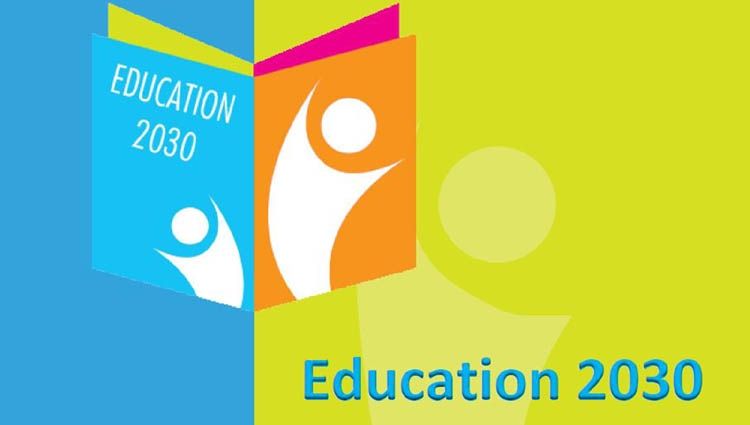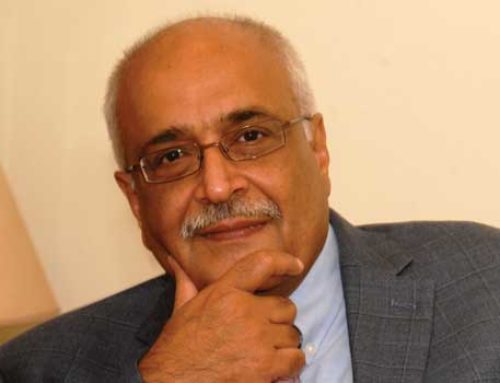Md. Mostafizur Rahaman
Global Action Week for Education is an annual global campaign that generally focuses on the burning issues related to education each year. This year the week has prioritized SDG4, which is one of 17 Sustainable Development Goals, specifically for education up to 2030. As SDG is an ambitious agenda, accountability might be an important factor in this regard. Global Action Week rightly picked up this issue where it seeks people’s engagement with the slogan Stand up for Education: Education Rights Nowto accelerate the process of accountability towards achieving SDG4 during 23-29 April, 2017.
The notion of accountability is also an integral part of the newly adopted Sustainable Development Goals (SDG), which is based on shared principles as well as national and international commitments to achieve the ambitious SDG agenda. All SDG goals and targets including education are expected to be backed by accessible and effective accountability mechanisms at global, regional, national and sub national levels. If we look at the accountability framework, we find that accountability and citizen’s participation are the key pillars of good governance.
Concern with accountability in education reflects several factors. First, the underperformance of education systems in light of global challenges focuses on inadequate access and availability, the inequitable distribution of educational opportunities, poor quality learning, increasing costs, limited quality assurance, abuses of power, financial mismanagement and corruption, and non-responsiveness to local needs. Second, there is growing evidence about the influence of good quality education on individual and collective well-being, which means that poor quality schools and weak outcomes squander opportunities for a better future. Third, education constitutes a – if not the – major budgetary expenditure in most countries; proper accounting of how these public funds are used and misused has become a high priority.
A transparent system encourages accountability in that it helps us hold those in authority accountable for their actions. An accountable government encourages public participation in governance. When public officials are accountable, the system engenders trust. If there is no trust between the government and the governed, cynicism holds sway and words like patriotism and national regeneration become mere empty shells meaning nothing.
Regulatory accountability in Bangladesh, as opposed to concentrating mostly on outcome measures in education, focuses more on inputs and processes, with an emphasis on compliance with applicable laws and regulations. It makes government liable to keep its commitment and ensure adequate facilities for education. As part of this, Bangladesh government needs to go for a stocktaking of the implementation of National Education Policy 2010. Government should also create entry points for non-state actors including civil society groups to participate in policy making, including coordination, implementation and monitoring in global goal SDG4. .
Considering financial accountability, it includes transparent overall budget process and ensuring adequate allocation for education and effective and efficient utilization of the resources. It also provides opportunity to people for tracking and sharing views and comments. It encourages concerned authority to think and take initiative picking the issue of reality. So, Bangladesh Government should allocate a minimum of 6% GDP and 20% of national budget to education. Donor countries must set out clear national plans for developing countries to deliver 0.7% of GNP as Official Development Assistance (ODA) and commit at least 15-20% of all ODA to education where at least half of education aid must go to basic education.
Participatory accountability is considered an effective strategy for building equitable education systems and providing quality education. It emphasizes the importance of participation by parents and the community in the education process which gives them more voice. Governments should put institutions in place that allow citizens to play an active role in keeping service providers accountable. As part of this, government should promote the practice of community education watch group initiatives to play watch dog role in education. So, schools will get accountable to community through a voice and opportunities for dialogue.
Professional accountability places educators in both formal and non-formal settings to have a commitment for meeting a range of learners’ needs, from engaging them in meaningful and relevant learning experiences and supporting their social and personal development to being responsible for their care and physical safety. They are also accountable for their adherence to professional standards set forth in their associations and also for the expected implementation of curricula and programs.
Accountability based on learning outcomes or performance provides standardized learning assessments to be used for measuring and tracking student achievement for decades. But the prevalence and different purposes of these assessments have grown substantially in recent years. They have become the basis for holding teachers, school leaders, schools and/or entire systems accountable by assessing performance on specific metrics, published in regular reports. In some contexts, teachers and school leaders are rewarded or sanctioned based on assessment results.
With a new ambitious global education goal, tight budgets and a focus on ensuring the marginalized are not left behind, countries like Bangladesh are under pressure to provide education more effectively, efficiently and equitably. Country efforts typically involve a similar set of approaches to improving the performance of their education systems, for example, decentralization and the devolution of decision-making authority, enhancing choice and competition in provision, establishing indicators to track performance, and increasing citizen participation. Most of these approaches converge in emphasizing accountability as the fundamental rationale for embarking on education reforms to improve system performance.
The writer is a Researcher and Development activist in Bangladesh. You can reach him at smostafiz_r@yahoo.com[:]






